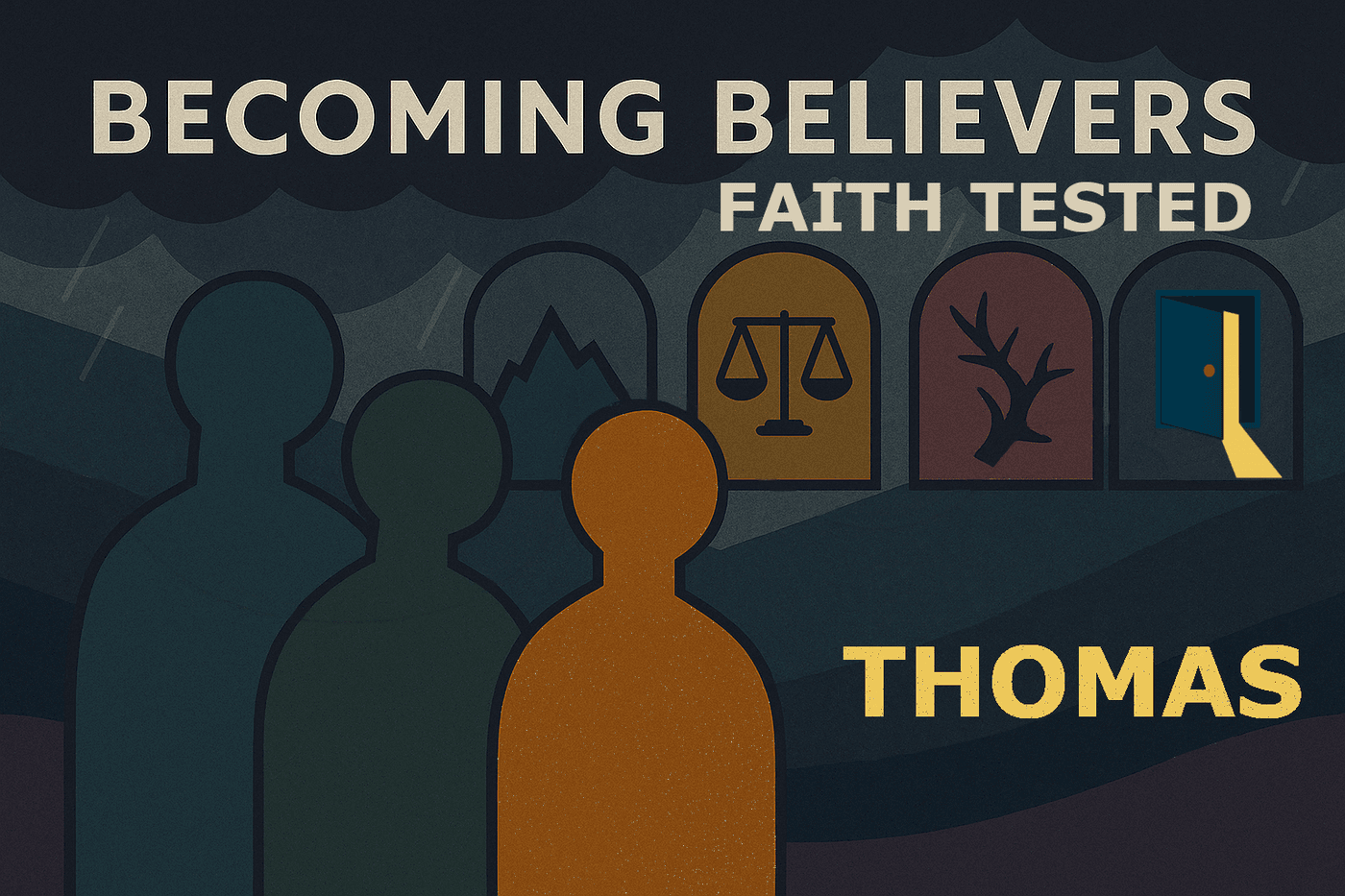
The Absent Disciple
When Jesus first appeared to His disciples after the resurrection, Thomas was not there. We are not told why.
Perhaps he was hiding elsewhere, perhaps tending to some errand, perhaps simply avoiding the company of grief.
Whatever the reason, he missed the moment. And when the others told him what they had seen, Thomas famously replied:

A Self-Generated Test
Many figures in Scripture face tests of faith.
Abraham is tested by God.
Job is tested by suffering.
Elijah is tested by despair.
We’ll be talking about all of them.
But Thomas is different. Thomas sets his own test.
His faith is not tried by external crisis, but by an internal demand.
He places conditions on God Himself: proof on my terms, or no belief at all.
This is what makes the story of Thomas so striking.
His doubt is not passive confusion. It is active resistance.
Thomas is not only tested—he is, in a sense, testing God.
He is testing his own God-given faith. It’s not uncommon.
The Patient Christ
And yet, one week later, Jesus comes.
The doors are locked. The disciples are gathered again.
And this time Thomas is with them.
Jesus stands in their midst and says, "Peace be with you."
Then He turns directly to Thomas: "Put your finger here… place your hand here… do not disbelieve, but believe."
There is both gentleness and challenge in these words.
Jesus meets Thomas exactly where he had placed the conditions, offering the evidence Thomas demanded.
But in doing so, He also exposes the insufficiency of the demand itself.
Faith cannot rest forever on proofs. It must rest on the Person who stands before him, risen and alive.
From Doubt to Confession
Thomas’s reply is immediate and profound: "My Lord and my God!" (John 20:28).
No disciple has yet spoken so directly of Jesus’ divinity.
Out of the soil of doubt grows one of the clearest confessions of faith in the New Testament.
Yet Jesus adds a word for all who will follow: "Have you believed because you have seen Me? Blessed are those who have not seen and yet have believed."
The blessing extends beyond Thomas. It reaches to every believer who must trust the apostolic testimony rather than their own eyes.
What We Learn from Thomas
Faith is sometimes tested not by circumstances outside us, but by doubts within us.
Thomas shows us that God does not despise our questions, even when they come as ultimatums.
Christ comes into locked rooms, meets us in our conditions, and turns our testing of Him into His testing of us.
But He does not leave us there. He calls us beyond the need for proofs, into the blessedness of trust.
And because He Himself is the author of our faith, however He tests it will always be for our good.
Takeaway: Doubt does not disqualify faith, but it does reveal where faith must grow. Jesus meets us in our questions, but He also calls us beyond them—to trust His Word and confess Him as Lord and God.
Prayer: Risen Lord, You met Thomas in his doubt and gave him peace. Meet us also in our uncertainties. Turn our questions into confession, and our hesitation into trust. Blessed are You, our Lord and our God. Amen.



